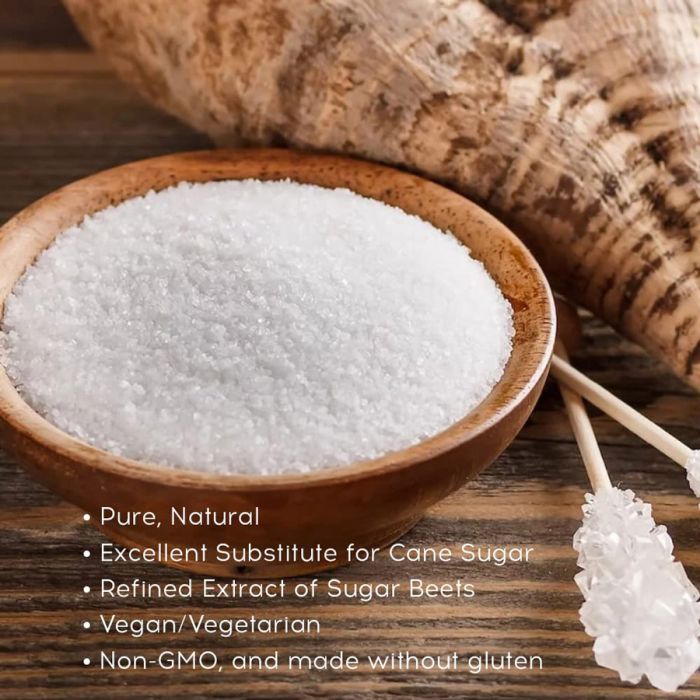People researching beet sugar vs cane sugar often want to know which dissolves better in hot drinks.
People researching beet sugar vs cane sugar often want to know which dissolves better in hot drinks.
Blog Article
Discovering the Differences in Usages and Benefits Between Beet Sugar Vs Cane Sugar
In the culinary world, the selection in between beet sugar and cane sugar is not just regarding sweetness yet involves a nuanced consideration of taste, application, and impact. While both sugars stem from different plants, each undertakes one-of-a-kind production processes that subtly affect their features and suitability for numerous meals.
Origins and Production Procedures of Beet and Cane Sugar

Walking cane sugar, on the other hand, comes from the sugarcane plant, a tropical turf belonging to Southeast Asia now cultivated in tropical zones worldwide. The production of cane sugar starts with the harvesting of cane stalks, which are squashed to release the juice. This juice is then steamed to focus it, after which it is spun in centrifuges to create raw sugar crystals. These crystals are further refined to generate the white sugar typically available in shops.

Nutritional Content and Health And Wellness Considerations

When contrasting the nutritional material of beet sugar and cane sugar, it comes to be obvious that both types essentially offer the same calorie worths, with about 16 calories per tsp and no significant nutrient diversity. Each is made up practically entirely of sucrose, which is a simple carbohydrate that uses quick energy yet does not have vitamins, minerals, or fiber. This resemblance prolongs to their influence on health and wellness, specifically worrying blood sugar degrees. Both sugars, when consumed over, can contribute to elevated blood sugar degrees, a threat aspect for diabetes and other metabolic disorders. Excessive consumption can lead to weight gain and oral troubles, as both sugars are similarly cariogenic, advertising tooth decay. From a wellness viewpoint, moderating consumption of any sort of sugar, whether from beet or cane, is try this suggested to avoid these prospective unfavorable impacts on wellness. Therefore, neither holds an unique benefit over the other in regards to health and wellness advantages.
Taste Profiles and Culinary Applications
In spite of their similar chemical frameworks, beet sugar and cane sugar differ discreetly in flavor, which can influence their use in different cooking contexts. Walking cane sugar often carries a hint of molasses, also in its polished kind, lending a warm, caramel-like undertone that enhances baked items, coffee, and chocolate-based dishes. On the various other hand, beet sugar is characterized by its highly fine-tuned, neutral preference, making it a flexible sugar that does not alter the taste profiles of meals.
Environmental Impact and Sustainability
While both beet and cane sugars are originated from plants, their environmental influences differ considerably because of the unique techniques of growing and processing needed for each and every. Sugar beet cultivation often involves considerable mechanization, which can increase fossil fuel consumption and carbon emissions. Beetroots can be grown in cooler environments and call for much less irrigation, potentially decreasing water use contrasted to sugarcane. Sugarcane, on the other hand, is typically expanded in tropical regions where it counts heavily on irrigation and a longer growing period, raising its water footprint.
Additionally, the handling of sugarcane typically creates a significant amount of waste, including bagasse, which, although functional as biofuel, regularly adds to air contamination if melted inefficiently. Sugar beet handling utilizes even more of the raw materials, leading to much less waste. Both sectors face difficulties in lowering their ecological impacts, but recurring technologies in farming methods and waste monitoring are intending to enhance sustainability.
Economic Factors Influencing the Sugar Sector
The financial dynamics of the sugar sector are dramatically influenced by worldwide market demands and profession policies. In regions view website where sugarcane or sugar beet production is subsidized, manufacturers may have an economic advantage that allows them to supply lower costs on the worldwide market.
In addition, changes in worldwide need for sugar, influenced by nutritional patterns and commercial use in foodstuff, straight impact costs and manufacturing degrees. beet sugar vs cane sugar. Climate condition additionally play a crucial function, as they can substantially influence crop yields and, consequently, the supply chain. This irregularity introduces a degree of economic unpredictability that can lead to investment volatility in sugar manufacturing markets, influencing decisions from growing to market approach
Verdict
In verdict, both beet and cane sugar have one-of-a-kind helpful resources high qualities that suit different cooking demands. While cane sugar imparts an abundant flavor perfect for improving baked products, beet sugar's nonpartisanship is ideal for lighter meals.
Report this page